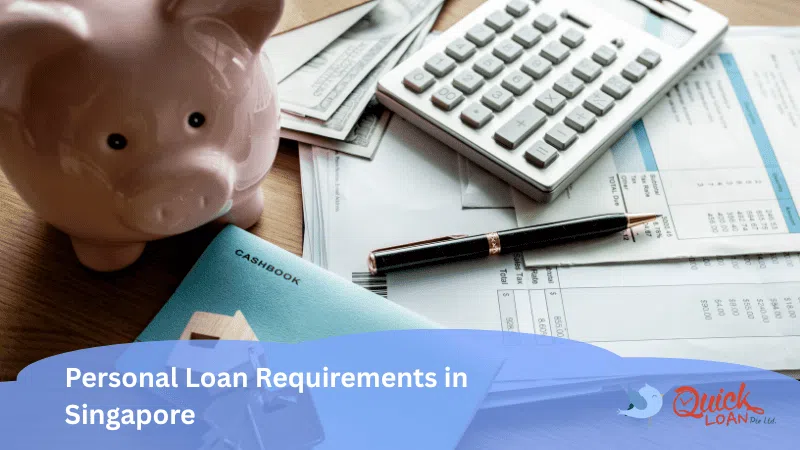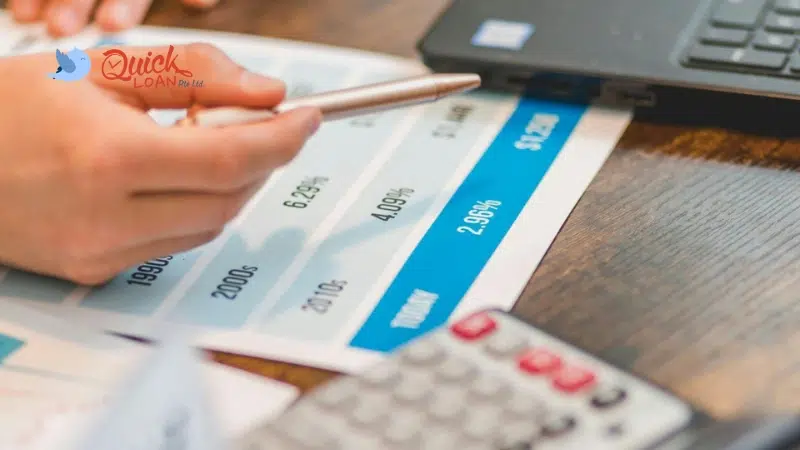What Is a Personal Loan?
A personal loan is money you borrow for short-term needs. You can use it for many things. This includes paying medical bills, vacation expenses, renovation costs, or clearing other debts. Most often a personal loan is unsecured, which means you don’t need to offer your property, car, or other assets as security. Lenders will rely more on your credit score, income, and repayment history. This will help them determine whether to approve your application.
Most personal loans in Singapore are repaid in fixed monthly amounts over a few years. This can be between 1 to 5 years. You pay back both the loan amount and the interest over time.
What Is a Home Loan?
A home loan, sometimes called a mortgage, is very different. It’s a long-term loan usually lasting 15 to 35 years and is usually meant for buying a home or property. Home loans are secured loans, which means the bank or lender uses your house as collateral. If you can’t keep up with the repayments, the lender has the legal right to take possession of the property.
Banks and lenders take a closer look at your finances before approving a home loan. This is usually because of the large amount involved. They’ll assess how much other debt you already have, including personal loans.
Will a Personal Loan Affect Your Mortgage Application?
When you apply for a home loan, lenders will check your total financial commitments. It will not just be your income. If you have an active personal loan, the monthly repayment from that loan will count to your Total Debt Servicing Ratio (TDSR).
TDSR combines all your monthly debts and compares them to your income. A high TDSR means you may qualify for less on your home loan or face tougher approval terms. Hence, it’s better to clear or reduce your personal loan before applying for a mortgage. This can help you borrow more and get better loan terms.
That’s why understanding both loan types is key before applying for a mortgage. Especially on how they’re viewed together by lenders.
Requirements of Taking a Home Loan After a Personal Loan

Yes, you can still take a home loan after a personal loan. But lenders will take a closer look at your finances to decide if you can manage both loans without risk. Below are the key things banks and financial institutions in Singapore usually check:
1. Repayment History
Lenders want to see if you’ve been paying your existing personal loan on time. Missed or late payments raise red flags. A strong repayment record shows that you’re responsible with your debts. This in turn, will boost your chances of home loan approval.
2. Income Stability
Your income tells lenders how well you can keep up with future payments. They’ll look at your monthly salary, how long you’ve been at your job, and whether your income is stable. Freelancers or self-employed borrowers may need to show more documents. This may include income tax records, as well as bank or CPF statements to prove consistency.
3. Remaining Loan Balance
If you still owe a large amount of your personal loan, this affects the amount you can borrow. The higher your outstanding debt, the lower the loan amount you may qualify for on a mortgage. It’s useful to understand how much personal loan you can get in Singapore so you can plan your finances accordingly before applying for a home loan. It’s often best to reduce your personal loan before applying for a home loan. This can help increase your loan approval chances.
4. Total Debt Servicing Ratio (TDSR)
In Singapore, your monthly debt obligations are taken into account for a home loan. The former should not exceed 55% of your gross monthly income. This includes credit cards, car loans, personal loans, and now your potential home loan.
This is known as the TDSR threshold. If your personal loan repayments already take up a large portion of this 55%, you will not be eligible for a home loan. Exceptions can be made, but it will be a smaller-than-normal amount at best.
5. Credit Score
Your credit score reflects how well you manage debt. Lenders check your score to see how risky it might be to lend to you. A clean credit report, free of missed payments or loan defaults, builds trust. If your score is low, you may face higher interest rates or stricter terms.
If you meet these personal loan requirements, you’re in a stronger position to take on both a personal loan and a mortgage. If not, it may be wise to reduce your current debt first.
What Are the Benefits of a Personal Loan on a Home Loan Application?

Is it a good idea to take a home loan after having a personal loan? At first, it might seem like this could reduce your chances of getting approved for a home loan. However, when managed carefully, it can actually strengthen your application. Here’s how:
1. It Shows You’re a Responsible Borrower
If you’ve taken a personal loan and made every payment on time, it reflects well on you. It tells lenders that you can manage your finances and follow a payment schedule. This boosts your overall credit reputation. With this, you may have access to better loan terms when applying for a mortgage.
2. It Can Help with Home-Related Costs
Buying a house often comes with extra expenses. This includes things like furniture, renovations, moving fees, or even small repairs. A personal loan can cover these one-time costs, so you don’t need to borrow more from your mortgage. This keeps your home loan smaller and more manageable in the long run.
3. It Builds Your Credit History
A personal loan adds to your credit history. For first-time borrowers or those with little credit activity, this can be a good thing. Lenders prefer applicants with some record of borrowing and repayment. A well-maintained personal loan helps prove your creditworthiness. This, in turn, will show that you’re capable of managing different types of debt.
4. It Can Strengthen Your Case with Non-Bank Lenders
Quick Loan, an instant loan provider in Singapore, often looks at more than just your income. If you’ve shown that you can repay a loan responsibly, they’re more open to helping you even if banks won’t. This is useful if your job situation is less traditional, such as a Grab driver or delivery personnel.
When used wisely, a personal loan isn’t a red flag, it’s a green light showing you’re in control of your money.
What Are the Disadvantages of a Personal Loan on a Home Loan Application?
While a personal loan can help in some cases, it also comes with trade-offs. This section highlights a few possibilities when you’re applying for a home loan.
1. It Adds to Your Monthly Debt
A personal loan means you’re already making monthly repayments. This means that it will count as part of your total debt. Hence, it will affect the lenders’ assessment for a home loan application. This can lower the amount you qualify to borrow for a home because your budget is already stretched.
2. It Affects Your TDSR
In Singapore, your TDSR has to stay below 55%. If your personal loan takes up a big part of that threshold, you might not have enough room left for a home loan. Do note that this still happens even if you earn well.
3. Lenders May See You as Higher Risk
Some lenders may think you’re borrowing too much at once. Having an active personal loan might make them cautious. They may respond by offering a smaller mortgage or adding more conditions. Some may even charge you a higher interest rate as a safety clause.
4. Approval Could Be Delayed or Rejected
If the personal loan amount is high or you’re still early in repayment, the home loan process might hit a pause. Some lenders may ask you to pay down or clear the personal loan first. Others may not be even willing to offer you a home loan, in fear of defaulting.
In short, a personal loan can slow down your home-buying plans. This affects by reducing how much you can borrow and raising your risk profile to lenders. That’s why it’s important to review your loan situation before applying for a mortgage. Especially if you’re aiming to buy a house soon!
How to Increase Your Chances of Getting a Mortgage?

Are you set to take a home loan after a personal loan? You’ll want to make yourself look as reliable as possible to lenders. Here are some smart steps to help improve your odds:
1. Pay Down Your Personal Loan First
If you can, reduce your personal loan balance or clear it entirely. This lowers your total debt and improves your TDSR. This tells lenders how much of your income goes to paying off loans. The lower your TDSR, the more you can borrow for a home.
2. Stay Consistent With Your Payments
Never miss a due date! Late payments hurt your credit score. This also signals to lenders that you may struggle with future repayments. Set up reminders or auto-pay if needed, a clean repayment record matters.
3. Avoid Taking On New Loans
As tempting as it might be, adding more debt before applying for a mortgage is risky. Even small new loans can tip the balance against you. This includes buy-now-pay-later deals or car financing. Keep your financial profile steady.
4. Save More for a Down Payment
The bigger your down payment, the smaller your home loan needs to be. This lowers your monthly repayments and shows the lender you’re financially responsible. If you can save 25% instead of 20%, that can make a positive difference.
5. Check Your Credit Report Early
Errors in your credit history can affect your loan chances. Get a copy from the Credit Bureau Singapore (CBS) and review it. Fix mistakes and make sure everything is accurate before applying.
6. Keep Your Job Stable
Avoid switching jobs close to your mortgage application. Lenders like to see a steady income, usually over at least six months. If you’re self-employed, show regular earnings through payslips or bank statements.
7. Talk to a Mortgage Advisor
Not sure where you stand? A licensed mortgage advisor or a financial planner can help you. They can explain your options, as well as estimate your TDSR. These advisors will guide you through what lenders are likely to look for.
Be sure to research and engage proper licensed mortgage advisors! Do not fall for fake claims or promises that may straddle you into further debt.
Doing these things doesn’t just increase your chances, it also helps you secure better loan terms. You may incur lower interest rates or bigger loan amounts on your future mortgage. Start early and plan ahead to make the home loan process much smoother.
Avoid Jumping Into a Mortgage Too Soon
“Can I take a home loan after a personal loan?”. That is a question worth thinking about carefully. Taking on a mortgage is a big deal. It’s not just another loan, it’s a long-term responsibility that often lasts for 20 to 30 years.
Before applying for a home loan, ask yourself a few honest questions:
- Can I comfortably afford both loans every month?
You’ll need to juggle mortgage repayments along with your existing personal loan. Ensure that your combined payments will not stretch your monthly budget too thin. Otherwise, it could lead to financial stress, or worse, missed payments.
- Will I still have money left over after paying both?
Beyond loan instalments, always remember you’ll still need to pay for other things. This includes utilities, groceries, insurance, transport, and emergencies. If your income doesn’t leave much room after all that, it may be risky to proceed.
- How stable is my income right now?
If your job situation is uncertain or your freelance income varies, taking on a home loan now could be too much. Wait until your earnings are more secure and steady.
- What if interest rates go up?
Future rate hikes can make your monthly payments more expensive. Make sure you’re prepared for that possibility, even if your mortgage is affordable now.
If you’re unsure about any of these points, or if the numbers don’t quite add up, it’s perfectly okay to wait. There’s no rush. In fact, waiting until your personal loan is mostly or fully paid off might be better. In this way, you can qualify for a better mortgage deal with a higher loan amount or lower interest rate.
As a final tip, use this time to save more, improve your credit score, and explore your options. When you’re ready, both your finances and confidence will be in a stronger place.





